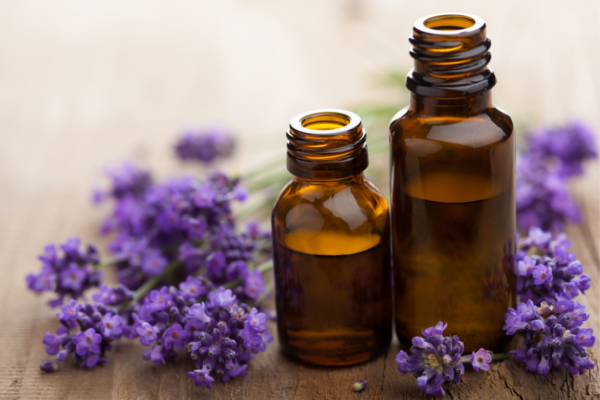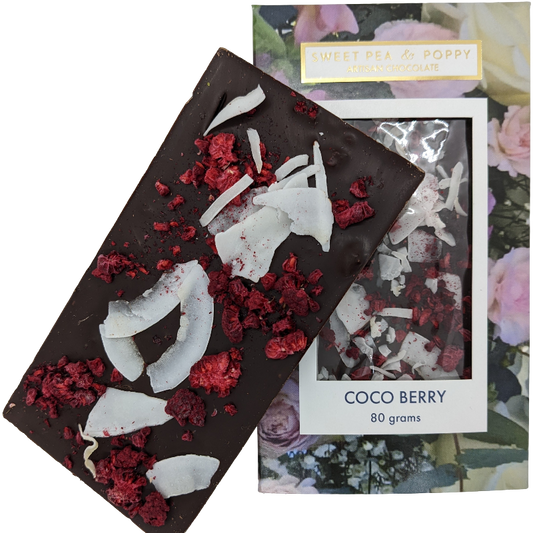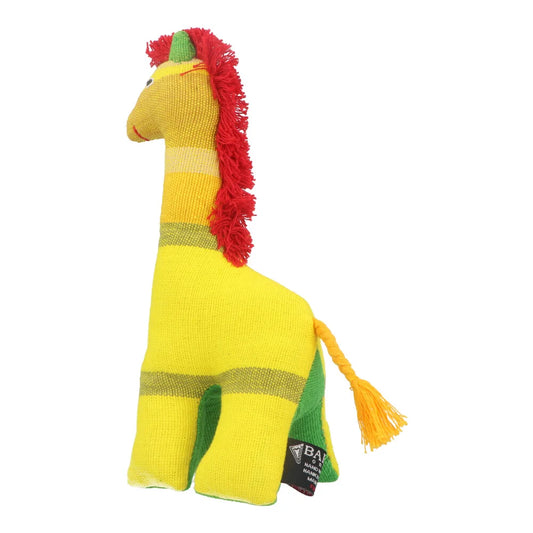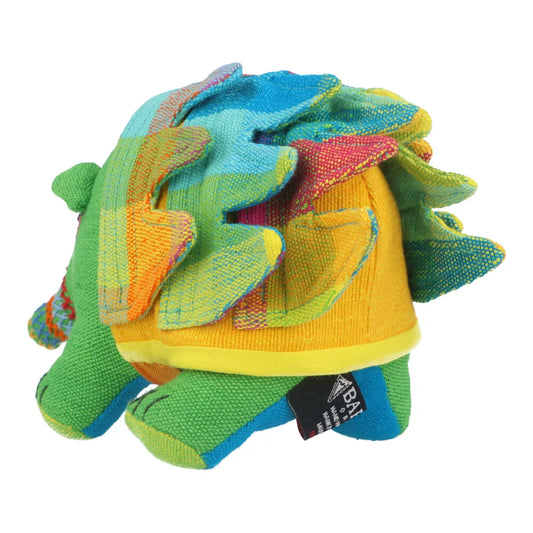
What are essential oils? We've all heard about these mystical substances small bottles that can do so much. They can freshen our homes naturally, lift our mood, be used in homemade products such as bath bombs, bath salts, used for cleaning and aromatherapy.
But, what are essential oils? What are their properties? And how do we effectively use them in our lives?
What are Essential Oils?
Get ready for some science! All essential oils originate from plants. The plant uses its essential oils for different reasons. They may attract pollinators, for instance when a rose attracts bees with its scent. They can also be used as a chemical defence against creatures that threaten the plant, including fungi and insects. The essential oil produced from plants varies between species, and the chemical composition of this oil determines what uses and benefits it gives us.
How do we get essential oils out of the plant? Essential oils are extracted through physical (and not chemical) processes. This process is usually distillation, but can also be a type of mechanical processing, dry distillation or tapping, depending on the plant. Through distillation, the oil is separated from the plant with water or steam and is then separated from the water, leaving only the purest oil. Now we have our essential oil! But what is it? Chemically-speaking, essential oils are concentrated substances with ‘volatile aroma compounds' in them.
These compounds are key for the essential oil: they are naturally occurring and aren't called ‘volatile' because they're bad. Quite the opposite. In science, ‘volatile' means something that changes its state quickly; the compounds in essential oils are volatile because they quickly change from a liquid to a gas at room temperature. This is why, when you pop open an essential oil bottle, you can smell it quickly and it seems to spread throughout the room even quicker. This is a primary property of essential oils. Apart from being volatile, essential oils also have a powerful smell, hence ‘volatile aroma compounds'. This aroma is the essence of the plant's fragrance, and is the reason why it smells like a stronger version of the real plant. This aroma is based on the chemical composition of the essential oil, which determines how an oil functions, and what it's uses are.
Overall, an essential oil is a concentrated, plant-based oil, that has a strong scent which travels quickly. But what can these oils do?
What are the properties of essential oils?
Essential oils can do many things, but are mainly used as a scent, ingredient or a topical application (we won't go into consuming essential oils because that's a whole other realm).
Firstly, essential oils' properties make them great for scent applications such as organic perfumes. The volatile chemicals and strong smell discussed above mean they have a potent aromatic effect across large areas. This can be applied by using essential oils to freshen a room. This potent aroma also affects people's mood and brain function (crazy, we know!). As the scent molecules are quickly absorbed by smell receptors in the nose, signals are sent to the limbic system of the brain. The limbic system constitutes a few brain areas and deals with emotion, behaviour, and motivation, among other things. Once the signals from the essential oils reach the limbic system, they can influence people's emotion and behaviour. And it is so much more gentle when the fragrance is from a natural perfume, not a harsh synthetic cocktail.
For instance, when you smell lavender oil, the scent molecules tell the brain to relax the body and decrease anxiety, literally calming you. This is why lavender oil is great to smell while trying to sleep. This practice is called Aromatherapy: a complementary therapy based on the therapeutic benefits of essential oil aroma. It is used for general mind and body well being. The effects essential oils have on us depends on the ones we use, and how much we use.
Secondly, essential oils can be applied topically. As essential oils are soluble in fats, they're absorbed easily into the skin. This absorption is increased when essential oils are mixed with a carrier oil, like jojoba, olive or avocado oil. This makes essential oils perfect for massage, as an oil-based moisturisor or serum, or for topical aromatherapy applications - this means you can dab an essential oil on yourself and get the aromatherapy benefits all day long! As they have a potent scent and are easily absorbed, they're also great for a natural, perfume alternative, when used in moderation. Other topical benefits include anti-fungal or antiseptic applications, depending on the oil. This is broadly what essential oils can do, but every essential oil has specific and differing properties, which would be hard to summarise here. However, if you check out all the essential oils Biome has to offer, each product will list their specific properties and uses. And you can be sure these oils are the best, most natural, and most safe product for you and your family.
What are the uses for essential oils?
There are so many uses for essential oils. We've already discussed aromatherapy, topical application, and as a natural fragrance alternative. But essential oils can also be used in your very own DIY products!
Here are some of our favourite home, cleaning and beauty recipes that are based on essential oils:
How to make bath bombs recipes
View all our DIY skincare, beauty, and cleaning recipes that use essential oils
What are the warnings?
Although essential oils are great, there are some things to keep in mind.
Firstly, don't use essential oils if you are pregnant; please check with your doctor first.
Secondly, as essential oils are potent, please use caution when applying them topically, as they may cause skin irritations, allergic reactions or contact dermatitis (a type of skin inflammation), including essential oils perfume. If you have sensitive skin, try using a carrier oil in conjunction with the essential oil. This means putting a few drops of essential oil into the carrier to dilute it, and then applying it, reducing the likelihood of irritation. When you're using any essential oil product, try and use sparingly throughout the day - potent substances don't need liberal application. Also, avoid areas that have sensitive skin, including the eye area. Some essential oils may increase the skin's sensitivity to sunlight, so check if this is a side effect of the oils you're using topically.
Thirdly, never, ever put essential oil on broken or damaged skin.
And finally, if you have any outstanding health conditions, such as epilepsy, please check with your doctor before using essential oils. This goes with any potent substance. Some essential oils may also be flammable, and may interact with materials such as rubber and plastic. Please check this before applying essential oils in your home.
If you're aware of all this and you're keen to start using essential oils in your life, read on to see what oils Biome has to offer!
Essential oil brands you can buy at Biome
Perfect Potion A trusted brand that started in Brisbane and now has a loyal following around the world. Premium pure essential oils created by passionate aromatherapists in a solar-powered lab. What's not to love? They are ideal for perfume essential oils.
Biome's own range. All your favourite versatile oils, selected by us for beautiful quality. Biome's clove oil is especially popular.
Mt Retour Essential Oils & Blends Australian owned, made, and packaged in recyclable materials, this brand has pure essential oils and blends for many uses.
Clove Bud Essential Oil Produced by Vrindavan bodycare, clove oil kills mould spores and kicks it to the curb for good!
Essentially Australia Specialising in Australian-grown essential oils rather than imported from Mango Myrtle to Lemon Myrtle and Australian eucalyptus.
Tinderbox Essential Oils Australian owned, 100% pure, no animal testing, recyclable packaging and made in small batches in Western Australia.
Lil' Bit Range This Australian, handmade company uses certified organic essential oils in many of their products - we particularly recommend the Sleepy Time Spray, Natural Bug Spray, and the Disinfectant Spray, all which use essential oils for household and aromatherapy purposes.
Banksia Aroma Pod A natural seed pod that soaks up essential oil and disperses the fragrance for weeks. Best of all, it can be refilled, creating zero waste and a beautifully-smelling home.
SOL Aroma Diffuser Add a few drops of essential oil to the water in the diffuser, and smell the scent cascade around the room. For many uses including aromatherapy and as a small humidifier. It's also made from sustainable bamboo and glass.
That Red House Laundry Tonic From the producers of our much-loved soap berries, this 100% natural tonic has a blend of pure essential oils to freshen your laundry.
We also have many amazing products which contain essential oils as their primary ingredients, like the Urthly Organics Solid Bath Bombs!
Shop online at Biome, or in store, to see what we have to offer.
Overall…
What are essential oils good for? A lot. They can be used topically, as aromatherapy, in products we make ourselves, or on their own. They really are a wonder product. So we hope we've helped you understand what essential oils actually are, and you now have some inspiration to incorporate them into your daily routine.
MORE READING




































